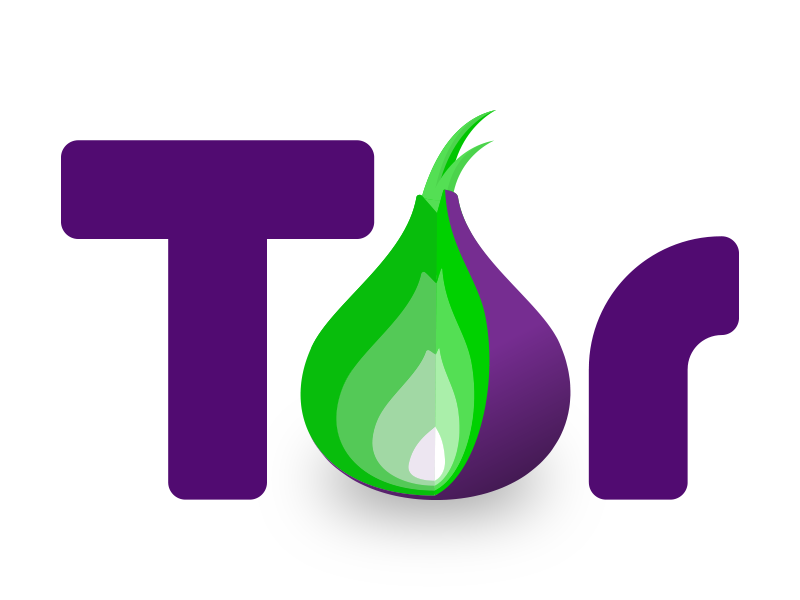In the ever-evolving landscape of online privacy, the Tor Browser has been a stalwart guardian for users seeking anonymity and security. However, like any tool, it has its features and limitations. In this article, we’ll delve into the intricacies of Tor Browser, explore its alternatives, and guide you through essential factors to consider when choosing the perfect Tor Browser alternative.
Tor Browser Unveiled: Features and Limitations

Features that Make Tor Browser Stand Out
- Anonymous Browsing: Tor Browser leverages a network of volunteer-operated servers to conceal your identity and online activities, providing a shield against surveillance.
- Access to the Dark Web: With Tor, users can access websites on the dark web, fostering an environment for free expression and privacy.
- Built-in Privacy Tools: The browser incorporates features like NoScript and HTTPS Everywhere, enhancing your overall online security.
Limitations of Tor Browser
- Speed Constraints: Due to its layered encryption and rerouting of traffic, the Tor Browser tends to be slower compared to conventional browsers.
- Not Ideal for Streaming: The bandwidth limitations make Tor less suitable for streaming high-definition content or engaging in bandwidth-intensive activities.
- Potential for Blocking: Some websites may block access to Tor exit nodes, limiting your ability to browse freely.
What Sets Tor Browser Apart
Tor Browser stands out as a stalwart guardian of online anonymity, utilizing a decentralized network of volunteer-operated servers to shield users from surveillance. Its unique approach enables access to the dark web, fostering an environment of free expression and privacy. With built-in privacy tools like NoScript and HTTPS Everywhere, Tor Browser goes beyond conventional browsers, providing a secure and anonymous browsing experience. Despite its merits, users may seek Tor Browser alternatives due to performance considerations, access limitations, or the desire for more tailored features that align with their evolving privacy needs.
The Need To Look For Tor Browser Alternative

In the ever-evolving landscape of online privacy, the need to explore the Tor Browser alternatives arises from a confluence of factors reflecting the diverse requirements and preferences of users navigating the digital realm.
1. Diverse Privacy Requirements
As individuals become more conscious of their digital footprint, the demand for privacy solutions tailored to specific needs has grown. Tor Browser, while commendable in its commitment to anonymity, may not cover the spectrum of diverse privacy concerns that users encounter. Some individuals may require a more nuanced approach to address unique aspects of their online presence. Whether it’s advanced customization options, additional security layers, or specific privacy features, seeking Tor Browser alternatives becomes imperative to align with these evolving privacy requirements.
2. Performance Preferences
One of the notable characteristics of Tor Browser is its emphasis on anonymity through a complex network of relays. However, while this design enhances privacy, it can result in a trade-off with browsing speed. Users engaged in activities that demand a higher bandwidth, such as streaming high-definition content or engaging in online gaming, might find the need to explore Tor Browser alternative browsers that strike a more favorable balance between speed and privacy. The quest for a seamless online experience often propels users towards alternatives that cater to their performance preferences without compromising security.
3. Access Limitations
The very nature of Tor, relying on a network of exit nodes, can encounter challenges when it comes to accessing certain websites. Some platforms implement measures to block or restrict users relying on Tor exit nodes, limiting the accessibility of content. This access limitation becomes a pivotal factor compelling users to seek Tor Browser alternative browsers that maintain a commitment to privacy while circumventing potential roadblocks, ensuring a more inclusive and unrestricted browsing experience.
4. Customization and Features
Every user’s digital journey is unique, and so are their preferences for browser features and customization options. Tor Browser, while offering a degree of flexibility, might not fully cater to the varied tastes of users. The need to explore alternatives arises when individuals desire a more tailored browsing experience. Whether it’s the integration of specific privacy add-ons, unique features, or a different user interface, seeking Tor Browser alternatives allows users to find a browser that better aligns with their individual preferences and requirements, enhancing their overall online experience.
Commonly Used Tor Browser Alternatives For Secure Browsing

In the dynamic realm of secure browsing alternatives, users are presented with a myriad of options, each designed to address the multifaceted needs of those who prioritize online privacy. Let’s delve deeper into the distinct features and strengths of each of these commonly used Tor Browser alternatives:
1. Brave Browser: Navigating the Web Fearlessly
Brave Browser is more than just a fast and secure browsing option; it’s a paradigm shift in how we perceive online privacy. Beyond its sleek interface, the standout feature lies in its built-in Tor mode. This integration empowers users to traverse the web securely and anonymously, shielding them from prying eyes. What sets Brave apart is its commitment to blocking intrusive ads, ensuring a clutter-free and private browsing experience. For those who value speed without compromising on security, Brave stands tall as a compelling Tor Browser alternative.
2. Mozilla Firefox with Privacy Add-ons: A Tailored Experience
Mozilla Firefox, a venerable name in the browser landscape, becomes a powerhouse when adorned with privacy-focused add-ons. Users seeking a tailored browsing experience can fortify their online defenses by incorporating tools like uBlock Origin and HTTPS Everywhere. This combination not only enhances security but also allows for a highly customizable environment. Firefox’s legacy of user-centric features, when coupled with these add-ons, provides a unique synergy that caters to the discerning user’s desire for a personalized and secure internet experience.
3. Epic Privacy Browser: Beyond the Ordinary
Epic Privacy Browser is a testament to pushing the boundaries of what a browser can achieve in terms of user privacy. By default, it blocks trackers and ads, clearing the digital clutter that often compromises online anonymity. What sets Epic apart is its inclusion of a built-in proxy, elevating the level of anonymity further. It’s a browser that not only champions privacy but does so with a level of sophistication that goes beyond the ordinary. For users seeking a comprehensive solution that seamlessly integrates privacy into every aspect of browsing, Epic is a noteworthy Tor Browser alternative.
4. Iridium Browser: Chromium with a Privacy Twist
Iridium Browser marries the familiarity of the Chromium framework with a heightened focus on user privacy. By discarding unnecessary data collection, Iridium provides a secure Tor Browser alternative to mainstream browsers. What sets it apart is the seamless integration of privacy features without compromising the intuitive nature of Chromium. Users get the best of both worlds – a familiar interface with enhanced security measures. Iridium becomes an attractive choice for those who appreciate the efficiency of Chromium but yearn for a more privacy-centric browsing experience.
5. Waterfox: A Swift and Secure Fox
Derived from Mozilla Firefox, Waterfox is the embodiment of speed and security. With features like tracking protection and telemetry removal, it offers a browsing experience that is not only swift but also secure. What sets Waterfox apart is its commitment to finding a delicate balance between performance and privacy. Users navigating the digital landscape, craving both speed and robust security features, can find solace in Waterfox as it encapsulates the essence of secure and swift browsing.
6. Pale Moon: Independent and Secure
Pale Moon, as an independent browser based on Firefox, brings a refreshing perspective to the table. Prioritizing efficiency and customization, it empowers users to tailor their privacy settings according to their preferences. What sets Pale Moon apart is its independent ethos, diverging from mainstream browsers to provide a unique and secure browsing experience. For those seeking a browser that veers off the beaten path while ensuring security, Pale Moon becomes an intriguing and reliable Tor Browser alternative.
7. GNU IceCat: For the Freedom Advocates
Developed as a freedom-respecting version of Firefox, GNU IceCat becomes more than a browser; it’s a symbol of advocating for an open and secure internet. With additional privacy features, it aligns with the principles of open-source software. What sets GNU IceCat apart is its unwavering commitment to user empowerment, making it an ideal choice for freedom advocates who prioritize both online privacy and the principles of open-source software.
8. Dissenter Browser: Navigating the Controversial
Dissenter Browser, crafted by Gab, takes a bold stance in the realm of online privacy. Integrating privacy features and an in-built ad-blocker, it becomes a haven for those who seek to navigate the digital landscape free from unnecessary online elements. What sets Dissenter apart is its focus on user choice and control. It’s an alternative that not only champions privacy but also empowers users to define their online experience in a way that aligns with their individual preferences and values.
9. Chromium with Extensions: Tailoring Your Browsing Experience
For users who find comfort in the familiarity of Chromium, the option to enhance it with privacy extensions provides a versatile and secure browsing environment. By incorporating tools like uBlock Origin and Privacy Badger, users can tailor their browsing experience according to their privacy preferences while enjoying the familiar interface of Chromium. What sets this approach apart is the flexibility it offers – users can choose the level of privacy that aligns with their individual needs, making it a practical and customizable alternative.
Factors To Consider While Choosing The Perfect Tor Browser Alternative

When venturing into the realm of Tor Browser alternatives, several critical factors should guide your decision-making process. Each factor contributes to the overall user experience, ensuring that the chosen alternative aligns seamlessly with your unique preferences and requirements.
1. Privacy Features: Balancing Anonymity and Security
Selecting the perfect Tor Browser alternative begins with an evaluation of its privacy features. Examine the browser’s commitment to safeguarding your online anonymity. Look for robust privacy tools such as ad-blockers, tracker blockers, and secure encryption protocols. A comprehensive suite of privacy features ensures that your online activities remain shielded from prying eyes. Consider how well the alternative aligns with your privacy expectations, striking the right balance between anonymity and security.
2. Performance and Speed: Navigating the Need for Speed
While privacy is paramount, it’s crucial to assess the performance and speed of your chosen alternative. Evaluate how well the browser handles bandwidth-intensive activities and streaming. The ideal Tor Browser alternative should offer a seamless browsing experience without compromising on speed. Finding the right balance ensures that you can enjoy the benefits of privacy without sacrificing the efficiency required for activities that demand higher bandwidth. Look for alternatives that strike this delicate equilibrium, providing both privacy and optimal performance.
3. Compatibility and Customization: Tailoring Your Browsing Experience
An often overlooked but crucial factor is the compatibility of the alternative with your preferred devices and the extent to which it allows customization. Check if the browser supports the platforms you frequently use, ensuring a consistent and seamless browsing experience. Furthermore, assess the level of customization the alternative offers. Look for options that empower you to tailor your browsing experience with extensions, themes, and privacy add-ons. A browser that aligns with your preferences and allows for a personalized touch ensures a more satisfying and user-centric journey.
4. User Community and Support: Navigating a Responsive Ecosystem
The strength of a browser’s user community and the availability of robust support mechanisms play a pivotal role in its overall reliability. Evaluate the vibrancy of the user community associated with your chosen Tor Browser alternative. A thriving community often translates to better updates, timely security patches, and a more responsive user experience. Additionally, assess the availability of support channels, forums, and documentation. Opting for an alternative with a strong and engaged user community ensures a more stable and well-supported browsing experience.
5. Cross-Platform Availability: Ensuring Seamless Accessibility
Consider the cross-platform availability of your chosen Tor Browser alternative. An ideal browser should seamlessly transition across different devices and operating systems, allowing you to maintain a consistent browsing experience regardless of the platform. Assess whether the alternative supports your preferred devices, such as desktops, laptops, or mobile devices. A cross-platform browser ensures that your online privacy is not confined to a specific device, granting you the flexibility to browse securely wherever you go.
Conclusion
In the ever-expanding realm of online privacy, choosing the right Tor Browser alternative involves weighing various factors. Whether it’s the speed of Brave Browser, the customization of Waterfox, or the freedom-respecting principles of GNU IceCat, each alternative has unique offerings. Consider your priorities, evaluate the features, and find the perfect balance between privacy and performance for your secure online journey.









